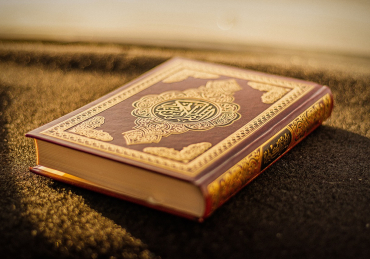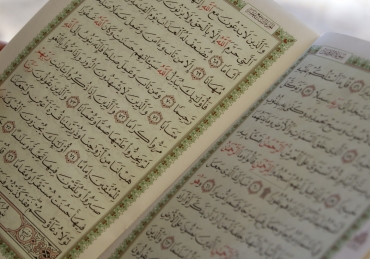Actions and supplications for pregnant women
Question
Are there any recommended actions or supplications for a pregnant woman during and after pregnancy?
بسم الله الرحمن الرحيم
Answer
There are many actions and supplications that have been mentioned by scholars based on the experience of the pious people of the past. They include the following:
Actions
- Remain punctual on the five obligatory Ṣalāh and perform as many non-obligatory prayers. (Click here for 10 tips to wake up for Fajr Salah).
- Supplicate and remember Allah as much as possible.
- Read the masnūn supplications for morning, evening, after Ṣalāh and other occasions. Obtain a free copy of the duʿāʾ booklet published by Ummah Welfare Trust or click here to download.
- Recite the durūd (salutations on the Prophet ﷺ) as much as possible. The Durūd Ibrāhīmī is the most virtuous and beneficial durūd.
- Recite and listen to the Qurʾān as much as possible. The entire Qurʾān is a means of Shifāʾ (cure).[1] Particular chapters include al-Fātiḥah, Āl ʿImrān, Yūsuf, Maryam, Sajdah, Yāsīn, Inshiqāq, Alam Nashraḥ and the final three chapters.
- Listen to Islamic lectures and read Islamic literature.
- Try to remain in the state of Wuḍūʾ at all times.[2]
- Abstain from all sins and doubtful matters.
- Have utmost trust and faith in Allah.
- Express gratitude to Allah and be thankful for His countless bounties.
- Take extra precaution with your diet and ensure you only eat genuine Ḥalāl food.
- Eat dates especially during labour. Maryam (peace be upon her) was provided fresh dates by Allah during labour.[3]
- Give as much charity as you can, for it stands in the way of adversity.[4]
- Perform two Rakʿah of Ṣalat al-Ḥājah (the prayer at the time of need).[5]
- Fulfil the Sunnah actions after the birth including:[6]
- Adhān and Iqāmah in the right and left ear respectively.
- Taḥnīk (chewing some sweet food e.g. dates and inserting into the baby’s mouth).
- ʿAqīqah (sacrifice of one or two animals for girls and boys respectively)
- Shaving the hair and giving charity in silver (or its value) equal to the weight of the hair.
- Naming the child with a good name.
- Circumcision for boys.
Supplications
(1) Supplicate with the following concise and comprehensive duʿāʾ mentioned in the Qurʾān (2: 201) and frequently read by the Prophet ﷺ: [7]
رَبَّنَا آتِنَا فِىْ الدُّنْيَا حَسَنَةً وَفِىْ الآخِرَةِ حَسَنَةً وَّقِنَا عَذَابَ النَّارِ
Our Lord, Grant us good in this world and good in the hereafter, and save us from the punishment of the fire.
(2) Supplicate with the following duʿāʾ of the special servants of Allah as mentioned in the Qurʾān (25: 74):
رَبَّنَا هَبْ لَنَا مِنْ أَزْوَاجِنَا وَذُرِّيَّاتِنَا قُرَّةَ أَعْيُنٍ وَاجْعَلْنَا لِلْمُتَّقِينَ إِمَامًا
Our Lord, Bestow on us the coolness of the eyes from our wives and our offspring, and make us leaders for the righteous.
(3) Supplicate with the duʿāʾ of Prophet Ibrāhīm (peace be upon him) mentioned in the Qurʾān (37: 100):
رَبِّ هَبْ لِيْ مِنَ الصَّالِحِينَ
My Lord, Grant me a righteous child.
(4) Supplicate with another duʿāʾ of Prophet Ibrāhīm (peace be upon him) mentioned in the Qurʾān (14: 40):
رَبِّ اجْعَلْنِيْ مُقِيْمَ الصَّلاَةِ وَمِنْ ذُرِّيَّتِيْ رَبَّنَا وَتَقَبَّلْ دُعَاءِ
My Lord, Render me as well as my progeny as establishers of Ṣalāh and accept my supplication.
(5) Supplicate with another duʿāʾ of Prophet Ibrāhīm (peace be upon him) mentioned in the Qurʾān (2: 128):
رَبَّنَا وَاجْعَلْنَا مُسْلِمَيْنِ لَكَ وَمِن ذُرِّيَّتِنَا أُمَّةً مُّسْلِمَةً لَّكَ وَأَرِنَا مَنَاسِكَنَا وَتُبْ عَلَيْنَا إِنَّكَ أَنتَ التَّوَّابُ الرَّحِيمُ
Our Lord, Make us submitters to You, and from our offspring let there be a nation of submitters to You. Show us our ways of worship, and relent towards us. You are the Relenting, the Merciful.
(6) Supplicate with the duʿāʾ of Prophet Zakariyyā (peace be upon him) mentioned in the Qurʾān (3: 38):
رَبِّ هَبْ لِيْ مِنْ لَدُنْكَ ذُرِّيَّةً طَيِّبَةً إِنَّكَ سَمِيْعُ الدُّعَاءِ
My Lord, Grant me from You good offspring. You are the Hearer of the prayers.
(7) Supplicate with another duʿāʾ of Prophet Zakariyyā (peace be upon him) mentioned in the Qurʾān (21: 89):
رَبِّ لَا تَذَرْنِيْ فَرْدًا وَأَنتَ خَيْرُ الْوَارِثِيْنَ
My Lord, Do not keep me without an heir, though You are the best inheritor.
(8) Supplicate to ease a difficulty with the duʿāʾ of the Prophet ﷺ:[8]
اللّهُـمَّ لا سَهْلَ إِلاّ ما جَعَلـتَهُ سَهْلاً وَأَنْتَ تَجْعَلُ الْحَزَنَ إِذا شِئْتَ سَهْلاً
O Allah, there is no ease except in that which you have made easy and you make the difficult, if You wish, easy.
(9) Supplicate with the duʿāʾ of the Prophet ﷺ when distressed or worried:[9]
يَا حَيُّ يَا قَيُّومُ بِرَحْمَتِكَ أَسْتَغِيْثُ
O Living, O Self-Sustaining Sustainer, in Your mercy, I seek relief.
(10) When experiencing bodily pain, place your hand on the affected area and say بِسْمِ اللهِ (In the name of Allah) three times and say the following seven times:
أَعُوْذُ بِاللهِ وَقُدْرَتِهِ مِنْ شَرِّ مَا أَجِدُ وَأُحَاذِرُ
I seek refuge in Allah and in His power from the evil of what I feel and that which I am weary of.[10]
It is important to note that the virtues and benefits of the aforementioned actions and supplications are not confined to pregnant women. There are no authentic narrations from the Prophet ﷺ that suggest this. These actions and supplications are based on general Prophetic statements and Qurʾānic verses as well as the experience of pious people of the past. Therefore, one should not confine the above to pregnant women.
Please note that during Nifās (post-natal bleeding) it is prohibited to recite the Qurʾān or perform Ṣalāh. However, you can listen to the Qurʾān and supplicate with all the verses mentioned above.
Allah knows best
Yusuf Shabbir
24 Jumādā al-Thāniyah 1437 / 2 April 2016
Footnotes
[1] Al-Qurʾān al-Karīm (17: 82; 41:44).
[2] Musnad Aḥmad (19034); Sunan Abū Dāwūd (17); Ṣaḥiḥ Ibn Khuzaymah (206); Sharḥ Maʿānī al-Āthār (110); Ṣaḥiḥ Ibn Ḥibbān (803); al-Mustadrak (592); al-Muʿjam al-Kabīr (781); al-Sunan al-Kubrā (426). Also see Muwaṭṭāʾ Mālik (90); Musnad Aḥmad (22378); Sunan Ibn Mājah (277).
[3] Al-Qurʾān al-Karīm (25: 25).
[4] Musnad Aḥmad (6955); al-Muʿjam al-Awsaṭ (5643); al-Sunan al-Kubrā (7831); Shuʿab al-Īmān (3082).
[5] Sunan al-Tirmidhī (479); al-Mustadrak (1199); Sunan Ibn Mājah (1384). Also see al-Furūʿ (2: 403).
[6] Tuḥfat al-Mawdūd Bi Aḥkām al-Mawlūd (chapters 4 – 9).
[7] Ṣaḥīḥ al-Bukhārī (4522; 6389).
[8] Ṣaḥīḥ Ibn Ḥibbān (974); ʿAmal al-Yawm Wa al-Laylah (351).
[9] Sunan al-Tirmidhī (3524); al-Mustadrak (1875); ʿAmal Yawm Wa al-Laylah (337); Shuʿab al-Īmān (9751). Also see: Musnad al-Bazzār (6368); al-Sunan al-Kubrā Li al-Nasāʾī (10330); ʿAmal al-Yawm Wal-Laylah Li al-Nasāʾī (569).
[10] Ṣaḥīḥ Muslim (2202).







